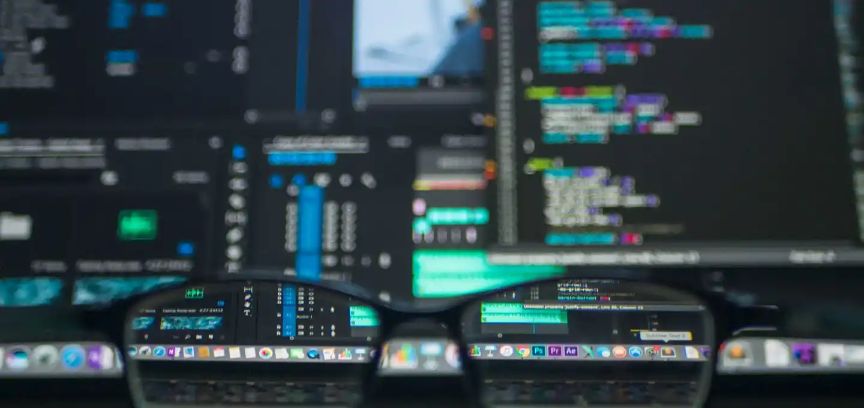Emerging Technology Trends in 2023
4 min read
27 Mar 2024
The world of technology is in a constant state of evolution, with each year bringing new advancements and trends that reshape industries and impact our daily lives. As we look ahead to 2023, several emerging technology trends are poised to take center stage. In this article, we'll explore some of the most significant technology trends expected to shape the year ahead.
1. Artificial Intelligence (AI) Advancements:
AI continues to be at the forefront of technological innovation. In 2023, we can expect AI to become even more integrated into various aspects of our lives. Here are some key AI trends:

AI in Healthcare: AI-powered diagnostic tools and personalized treatment plans will become more common, improving patient outcomes and reducing healthcare costs.
AI in Cybersecurity: AI will play a critical role in identifying and mitigating cyber threats in real-time, enhancing cybersecurity measures.
Conversational AI: Conversational AI, including chatbots and virtual assistants, will become more sophisticated, providing better customer support and user experiences.
AI in Finance: AI-driven financial services, such as robo-advisors and fraud detection systems, will continue to gain traction.
2. 5G Expansion:
The rollout of 5G networks is expected to accelerate in 2023, offering faster and more reliable connectivity. This will pave the way for several transformative trends:
IoT Growth: 5G will facilitate the growth of the Internet of Things (IoT), enabling more connected devices, smart cities, and industrial applications.
Augmented Reality (AR) and Virtual Reality (VR): 5G's low latency and high bandwidth will enhance AR and VR experiences, from gaming to remote collaboration and training.
Edge Computing: With 5G, edge computing will become more prevalent, allowing for real-time data processing closer to the source, reducing latency in applications like autonomous vehicles and industrial automation.
3. Quantum Computing Advancements:
While practical quantum computers are still in the experimental stage, 2023 is expected to see significant progress in this field:
Quantum Supremacy: Quantum computing may achieve new milestones, surpassing classical computers in solving complex problems.
Quantum Algorithms: Researchers will develop more quantum algorithms with practical applications in fields like materials science, cryptography, and optimization.
Commercialization: Companies like IBM, Google, and startups like Rigetti and IonQ will continue to make quantum computing accessible through cloud-based services.
4. Sustainable Technology:
Sustainability will be a central theme in technology trends for 2023:
Green Data Centers: Data centers will adopt more eco-friendly practices and technologies to reduce energy consumption and carbon emissions.
Renewable Energy Tech: Advances in renewable energy sources, such as solar and wind, will lead to more efficient and cost-effective energy solutions.
Circular Tech Economy: The tech industry will focus on reducing electronic waste through recycling and refurbishing initiatives.
5. Biotechnology Breakthroughs:
Biotechnology is poised for remarkable advancements in 2023:
Genome Editing: Technologies like CRISPR-Cas9 will continue to evolve, enabling precise genome editing for medical treatments and agriculture.
Personalized Medicine: Advances in genomics and AI will lead to more personalized healthcare, tailoring treatments to individual genetic profiles.
Bioprinting: 3D bioprinting will advance, allowing for the creation of complex tissues and organs for transplantation and research.
6. Cybersecurity Enhancements:
As cyber threats evolve, cybersecurity will become increasingly sophisticated:
Zero Trust Security: The adoption of zero trust security models will continue to grow, emphasizing continuous authentication and verification.
AI-Powered Threat Detection: AI-driven cybersecurity solutions will be crucial in identifying and mitigating evolving cyber threats.
Blockchain for Security: Blockchain technology will be used to enhance security in areas like identity verification and data protection.
7. Space Exploration and Commercialization:
Space technology will experience significant developments:
Moon and Mars Missions: NASA and private companies like SpaceX will continue planning and executing missions to the Moon and Mars, paving the way for future exploration and colonization.
Space Tourism: Space tourism will become more accessible, with companies like Virgin Galactic and Blue Origin offering suborbital flights to civilians.
Satellite Mega-Constellations: The deployment of satellite mega-constellations, such as Starlink, will revolutionize global internet connectivity.
8. Decentralized Finance (DeFi):
Blockchain-based financial systems, known as DeFi, will continue to disrupt traditional finance:
Decentralized Exchanges: DeFi platforms will provide decentralized alternatives to traditional exchanges, offering greater accessibility and financial inclusivity.
NFTs and Digital Assets: Non-fungible tokens (NFTs) will expand beyond art and entertainment, with applications in gaming, real estate, and digital collectibles.
DeFi Lending and Borrowing: DeFi protocols will offer lending and borrowing services, enabling users to earn interest and access loans without intermediaries.
9. Remote Work Technology:
The remote work trend, accelerated by the COVID-19 pandemic, will continue to shape the tech landscape:
Hybrid Work Models: Companies will adopt hybrid work models, requiring technology solutions that support both in-office and remote work.
Collaboration Tools: Collaboration platforms like Zoom, Microsoft Teams, and Slack will continue to evolve to enhance remote teamwork.
Cybersecurity for Remote Work: Cybersecurity measures for remote work will become more critical, with a focus on securing remote access and data.
10. AI Ethics and Regulation:
As AI becomes more integrated into society, the need for ethical guidelines and regulation will intensify:
AI Ethics Boards: Organizations will establish AI ethics boards to ensure responsible AI development and deployment.
AI Regulations: Governments will implement regulations to address bias, transparency, and accountability in AI systems.
AI Education: The importance of educating the public and policymakers about AI ethics will grow, fostering a deeper understanding of AI's societal impacts.
In conclusion, the technology trends expected in 2023 reflect the ever-evolving nature of the tech industry. From AI and 5G to quantum computing and sustainability initiatives, these trends have the potential to reshape industries, improve our quality of life, and address pressing global challenges. As technology continues to advance, it is essential to navigate these trends responsibly, considering their ethical implications and societal impacts to ensure a better and more equitable future for all.



